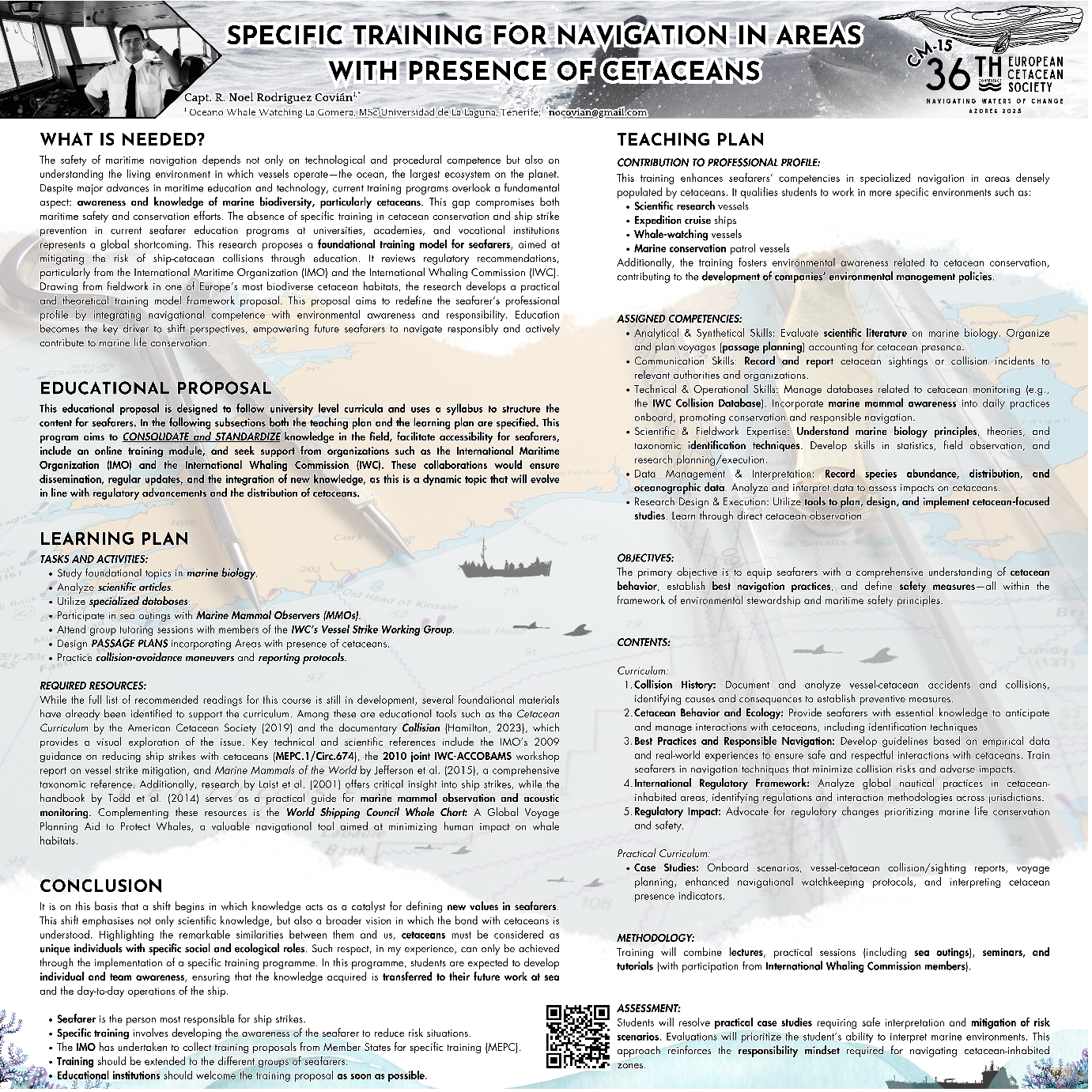Maritime Education
Towards Responsible Maritime Education for Marine Life Protection
In early May, Captain Noel Covian, member of our partner organization OCEANO, published an article in the Journal of Maritime Research focusing on a critical issue: ship collisions with cetaceans—an area of ongoing concern for MEER e.V.. The article, titled “Specific Training for Navigation in Areas with the Presence of Cetaceans”, highlights a serious gap in maritime education: the lack of awareness and training among seafarers regarding marine biodiversity, particularly whales and dolphins. This gap poses risks not only to conservation efforts but also to maritime safety.
To address this, Covian proposes integrating specific training on cetacean awareness and collision prevention into university programs in nautical science and maritime transport. Such training would equip future officers and captains with the skills needed for safer, more environmentally responsible navigation. His proposal is supported by recommendations from international bodies such as the International Maritime Organization (IMO) and the International Whaling Commission (IWC), which have long warned about ship strikes but whose guidance has yet to be widely adopted in academic curricula. The article presents a detailed training plan that includes modules on cetacean ecology and behavior, identification techniques, international regulations, responsible navigation, and passage planning—complemented by hands-on exercises and at-sea experience. For Covian, true and lasting change in maritime practices begins with a sense of environmental responsibility among those who operate at sea. At MEER e.V., we fully endorse this vision. Educating seafarers to be both competent navigators and conscious stewards of the ocean is key to protecting marine life and ensuring a safer future at sea.
Abstract of the Article:
The safety of maritime navigation depends not only on technological and procedural competence but also on understanding the living environment in which vessels operate—the ocean, the largest ecosystem on the planet. Despite major advances in maritime education and technology, current training programs overlook a fundamental aspect: awareness and knowledge of marine biodiversity, particularly cetaceans. This gap compromises both maritime safety and conservation efforts. The absence of specific training in cetacean conservation and ship strike prevention in current seafarer education programs at universities, academies, and vocational institutions represents a global shortcoming. This study proposes a foundational training model for seafarers aimed at mitigating the risk of ship- cetacean collisions through education. It reviews regulatory recommendations, particularly from the International Maritime Organization (IMO) and the International Whaling Commission (IWC). Drawing from fieldwork in one of Europe’s most biodiverse cetacean habitats, the research develops a practical and theoretical training model framework proposal. This proposal aims to redefine the seafarer’s professional profile by integrating navigational competence with environmental awareness and responsibility. Education becomes the key driver to shift perspectives, empowering future seafarers to navigate responsibly and actively contribute to marine life conservation. This article charts the course for a new generation of maritime professionals—skilled, conscious, and committed to the protection of cetaceans.
Ganzer Artikel: Specific Training for Navigation in Areas with the Presence of Cetaceans
